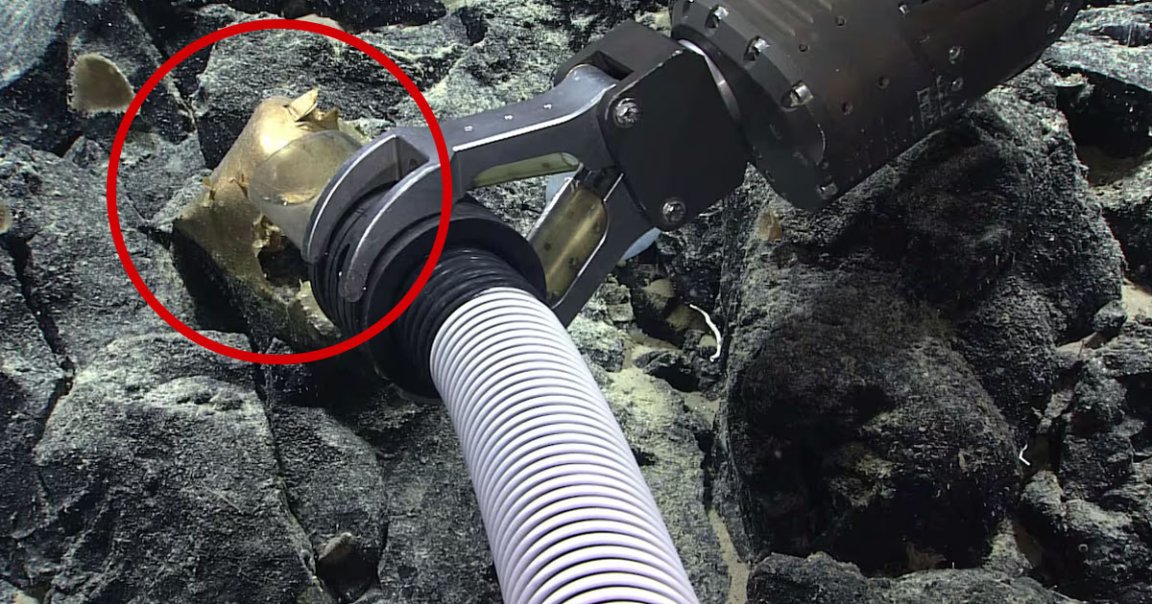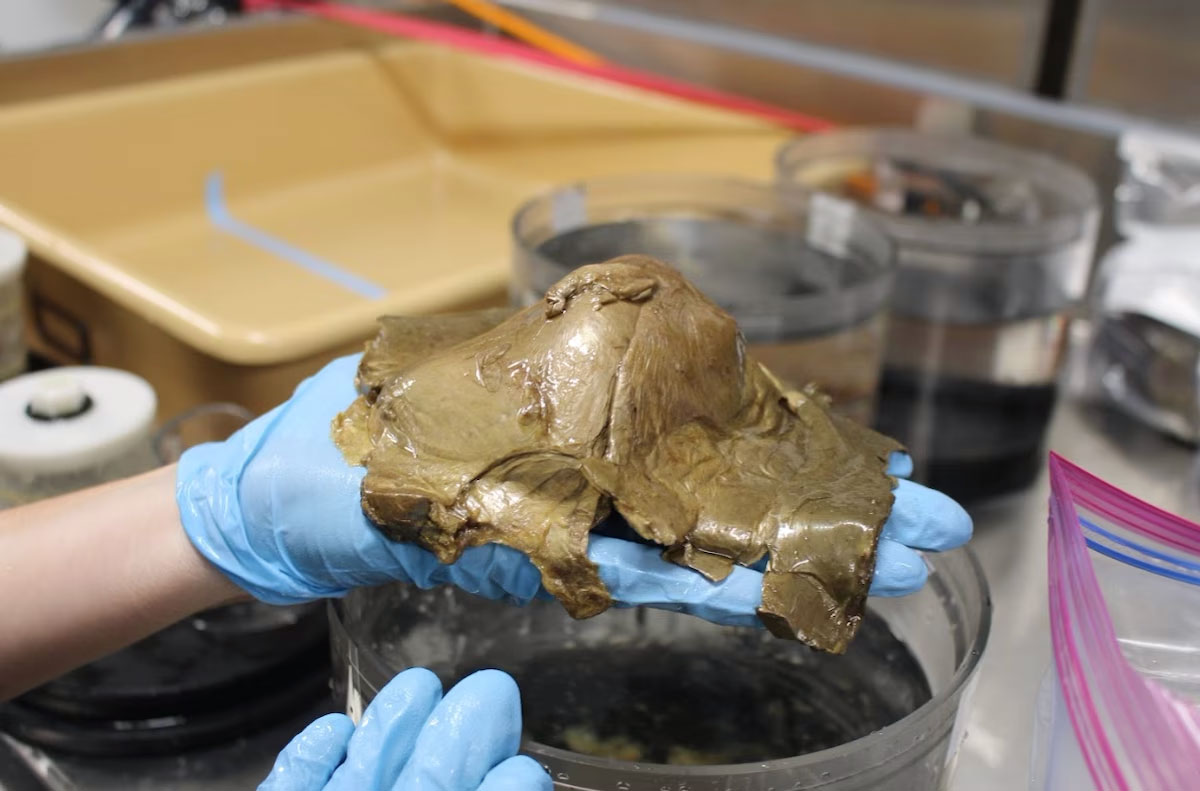
Treasure Chestburster
During a recent mission mapping a previously unexplored habitat off the coast of Alaska, a submersible remotely operated by the National Oceanic and Atmospheric Administration (NOAA) came across something unexpected.
A smooth “golden egg” appeared during the mission’s livestream last month, mystifying scientists nearly two miles under the surface.
“It’s definitely got a big old hole in it,” one researcher said during the live stream, as quoted by the Washington Post. “So something either tried to get in or tried to get out.”
While viewers had a field day comparing the baffling object to the iconic — and fictional — eggs from the 1979 science-fiction horror movie “Alien,” it likely has terrestrial origins.
But scientists are struggling to nail down specifics, even after recovering it from the depths. After all, more than 80 percent of the Earth’s oceans have yet to be mapped or explored, let alone seen by humans.
“While somewhat humbling to be stumped by this finding, it serves as a reminder of how little we know about our own planet and how much is left to learn and appreciate about our ocean,” Sam Candio, the NOAA Ocean Exploration coordinator for the expedition, told WaPo.
Golden Goose Egg
Some experts believe the object may have been left behind by an ocean dweller.
“At first glance, it’s possibly the remains of an egg case of an invertebrate animal, or perhaps a slightly mangled sponge,” Jon Copley, a professor of ocean exploration and science communication at the University of Southampton, told WaPo.
The mysterious object appeared more like a puddle of brown-ish slime after the NOAA’s Ocean Explorer fished it out of the ocean, pictures revealed. “Tickling” the egg revealed a thin, skin-like covering.

But for now, we’ll have to wait until scientists get a chance to study it in detail in a laboratory setting before we get more answers.
“Without detailed examination and analysis of the specimens obtained, we don’t know what this strange object is,” Daniel Jones, associate head of ocean biogeosciences at Britain’s National Oceanography Center, told the newspaper. “But it highlights the diversity of life in the world’s deep oceans that remains undiscovered and the importance of scientific exploration.”
More on the object: Scientists Find Strange Golden Object at Bottom of Pacific Ocean